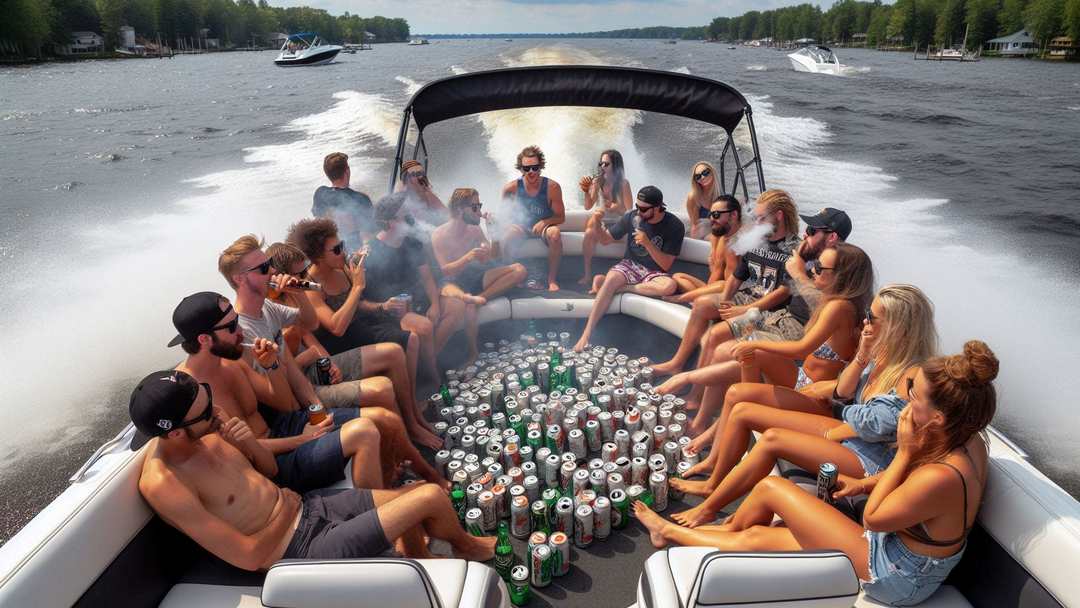Michigan Criminal Laws FAQs Theft CrimesAccording to Michigan State Law (Michigan Compiled Laws - MCL), Theft Crimes generally involve the unlawful taking of someone else's property with the intent to deprive them of it, either permanently or for a significant period....

Federal Ban on Owning Firearms by Cannabis Consumers is Unconstitutional Court Says
Federal charges against a non-violent, cannabis-using gun owner were unconstitutional.
A federal appeals court panel upheld a lower court’s ruling on Wednesday, declaring that federal charges against a non-violent, cannabis-using gun owner were unconstitutional.
“The short of it is that our history and tradition may support some limits on a presently intoxicated person’s right to carry a weapon,” the court wrote in the new opinion, “but they do not support disarming a sober person based solely on past substance usage.”
Mental Defectives?
Judges have also contested assertions made by Department of Justice attorneys that individuals who use cannabis pose a greater danger than their fellow Americans.
“Nor, contrary to what the government contends, do restrictions on the mentally ill or more generalized traditions of disarming ‘dangerous’ persons apply to nonviolent, occasional drug users when of sound mind.”
The DOJ has contended in this and other recent legal proceedings that the federal prohibition on gun and ammunition possession by individuals who use marijuana aligns with historical limitations on gun ownership, including those applied to individuals deemed mentally defective and others whose firearm possession poses a risk to public safety.
The Fifth Circuit panel disagreed.
“We must ask: why was severe mental illness a reason the Founders disarmed people, and is that ‘why’ ‘relevantly similar’ to § 922(g)(3)?”
Referring to the legal provisions that prohibit individuals who engage in the use of illegal drugs from owning firearms.
Judges also said the government failed to demonstrate that lawful restrictions on gun ownership by domestic abusers or the mentally ill were sufficiently similar to its law against firearm possession by drug users.
“Marijuana user or not,” opined the court, “Paola is a member of our political community and thus has a presumptive right to bear arms. By infringing on that right, § 922(g)(3) contradicts the Second Amendment’s plain text.”
“Laws designed to disarm the severely mentally ill do not justify depriving those of sound mind of their Second Amendment rights,” the court wrote. “The analogy stands only if someone is so intoxicated as to be in a state comparable to ‘lunacy.’”
Legal Help
If you’re facing charges for a firearm offense while under the influence of alcohol or a controlled substance in Michigan, it’s essential to seek legal counsel immediately. A trained and experienced DUI attorney can provide guidance potentially helping to mitigate penalties or even challenge the charges.
Legal defense Attorney Michael Komorn is trained and certified in Field Sobriety Tests (FST), Horizontal Gaze Nystagmus and the infamous breathalyzer and has been representing clients charged with DUI and alleged crimes since 1993. Call Komorn Law 248-357-2550 when you’re ready to challenge DUI or any alleged criminal charges.
DOJ has made similar arguments in a case in a separate case in the U.S. Court of Appeals for the Eleventh Circuit.
In that matter, a group of Florida medical cannabis patients contends that their Second Amendment rights are being violated because they cannot lawfully buy firearms so long as they are using cannabis as medicine, despite acting in compliance with state law.
Meanwhile back at the ranch…
The Biden administration, meanwhile, argues that medical marijuana patients who possess firearms “endanger public safety,” “pose a greater risk of suicide” and are more likely to commit crimes “to fund their drug habit.”
Probably until October 2024
Last year, for example, the Justice Department told the U.S. Court of Appeals for the Third Circuit that historical precedent “comfortably” supports the restriction. Cannabis consumers with guns pose a unique danger to society, the Biden administration claimed, in part because they’re “unlikely” to store their weapon properly.
Earlier this year, President Joe Biden’s son Hunter was found guilty by a federal jury of breaching the law by purchasing and possessing a firearm while actively using crack cocaine.
Cases
The case, U.S. v. Connelly, is one of a handful of federal court cases.
Paola Connelly is a non-violent, marijuana smoking gunowner. El Paso police came to her house in response to a “shots fired” call. When they arrived, they saw John, Paola’s husband, standing at their neighbor’s door firing a shotgun. After arresting him, they spoke with Paola, who indicated that she would at times smoke marijuana as a sleep aid and for anxiety. A sweep revealed that the Connellys’ home contained drug paraphernalia and several firearms, including firearms owned by Paola. There was no indication that Paola was intoxicated at the time.
Read the rest here US Court of Appeals – 5th District US v Conelly – Non Violent Cannabis User and Firearms
Recent

Criminal Law FAQs – Theft Crimes

Criminal Law FAQs – Domestic Violence
Michigan Criminal Laws FAQs Domestic ViolenceAccording to Michigan State Law, Domestic Violence is not a standalone criminal offense but rather a designation applied to certain crimes when the victim is a "spouse or former spouse, an individual with whom the person...
Other Articles
Domestic Violence Conviction Prohibits Gun Ownership
No Second Amendment Rights For YouIf you are charged with a crime you're part of the State of Michigan family now. Call us - Because you don't want to be a part of that family. Komorn Law (248) 357-2550A federal judge in Michigan has ruled that a man with a prior...
Update on Michigan’s Sick Time Act (Small Business Compliance)
Small Business Compliance Accrual Method: Employees accrue 1 hour of paid sick time forevery 30 hours worked, and unused paid sick time rolls over upto 72 hours, or 40 for a small business. Employers may limit theuse of earned sick time to 72 hours, or 40 for a small...
What Are Your Rights Before And After Arrest?
What are your rights before and after arrest?Generally, police require a search warrant to lawfully enter any private premises or to search electronic devices such as your phone or computer. If the police do not possess a search warrant, you are under no obligation to...
Drones – What Drones? Update
Drone story update January 28, 2025 NJ drones 'were authorized to be flown by FAA for research,' Donald Trump says The mysterious drones that captivated New Jersey late last year were not enemy craft, but instead were authorized by the FAA, President Donald Trump said...












